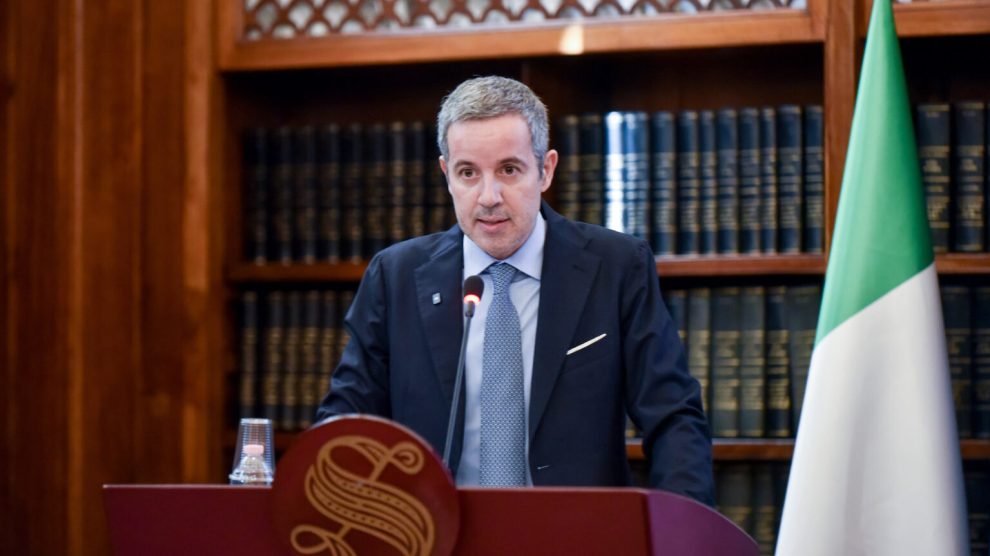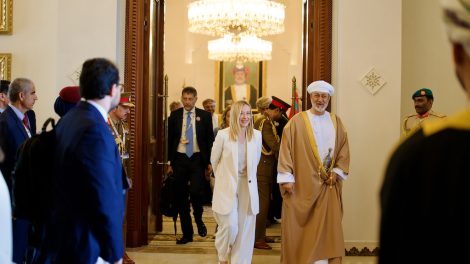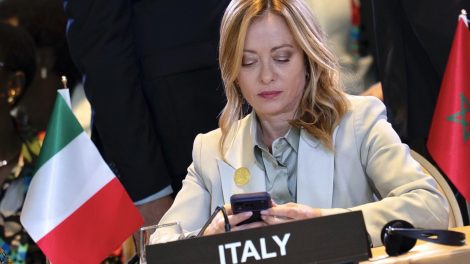The legislative plan comes just days before the Supreme Defence Council meeting called by President Sergio Mattarella, which will focus on hybrid threats and the evolution of modern conflicts.
Italy’s Democratic Shield: Italy is beginning to frame hybrid warfare not only as a military or cybersecurity issue, but as a direct challenge to democratic institutions and free information.
Why he matters: Marco Lombardo, Senator for minority party Azione and co-author of the Democratic Shield Act, has led nine months of parliamentary hearings on hybrid threats and foreign interference. Backed by party leader Carlo Calenda, his proposal aims to align Italy’s security framework with the EU’s “European democratic shield” and strengthen national resilience against disinformation and election manipulation.
Q: Senator Lombardo, your proposal comes just before the Supreme Defence Council meets to discuss hybrid threats. Is that a coincidence?
A: Not at all. The timing reflects how urgent this issue has become. The proposals that Carlo Calenda and I have put forward are deeply European in inspiration.
- When President von der Leyen spoke of a European democratic shield in her re-election speech, she raised a fundamental issue that has been underestimated in public debate.
- We decided to act by proposing a national model to protect our democratic institutions.
Q: You often refer to “hybrid warfare” and the “cognitive dimension.” What do these mean in practice?
A: They refer to strategies that do not rely on traditional weapons but on informational, technological, and financial tools. Disinformation, manipulation campaigns, and economic interference have become weapons of war.
- The real problem is that public awareness is still limited. During nine months of hearings in the European Affairs Committee, we gathered significant evidence of how deep this threat runs.
Q: Can you give a concrete example?
A: The Moldovan ambassador told us about an attempt to alter a referendum result using forty million dollars in cryptocurrencies, spread across 138,000 personal accounts.
- It shows how a democratic process can be distorted without firing a single shot.
Q: Let’s turn to your legislative proposal. What does it entail?
A: We drafted two complementary texts: ordinary law and constitutional amendment.
- The first establishes a Centre for Democratic Protection Analysis, composed of experts from the public and private sectors, tasked with monitoring digital platforms for manipulation or interference.
- The second introduces a “democratic emergency brake”: if evidence emerges of an interference that compromises electoral integrity, Parliament — not a judge — can vote, by a cross-party majority, to suspend the election process.
Q: Would this prevent cases like those in Romania, where an election was annulled?
A: Exactly. The goal is to ensure that responses to hybrid threats arrive in time. The democratic shield is designed to protect the vote’s legitimacy, not to politicise it.
Q: How has the proposal been received in Parliament so far?
A: Our resolution was approved in the Senate’s European and Foreign Affairs Committees, with the Five Star Movement abstaining.
- The League voted in favour, although one of its senators abstained due to absence. Now I will formally request that it be debated in the Senate plenary.
- That will be a test of transparency: we’ll see who truly intends to defend democracy and who prefers to remain ambiguous — especially after President Mattarella’s clear stance on hybrid threats.
Q: The debate often focuses on Russia, but you mention China and Iran. Why?
A: Because while Russian interference is the most visible, Chinese and Iranian operations are equally pervasive.
- China acts through economic and technological penetration; Iran through propaganda and digital networks.
- They are different in form but coordinated in purpose: to erode the cohesion of Western democracies.
Q: You also connect the democratic shield to free press protection. How?
A: Disinformation fuels hybrid wars. Defending a free press means giving it the tools to resist coordinated manipulation. Our proposal aims to protect not only the ballot box but also the truth of facts.
Q: What is the broader political message of your initiative?
A: That democratic security is not a partisan issue — it is a national responsibility. Italy can lead in Europe if it has the courage to equip itself with a shield against interference and cognitive manipulation that undermine freedom of vote and expression.
The bottom line: Lombardo’s “democratic shield” seeks to place Italy at the forefront of Europe’s defense against hybrid threats — creating institutional mechanisms to detect, expose, and counter foreign manipulation of public opinion and elections.
- Whether Parliament embraces this initiative will signal how seriously Rome intends to protect the integrity of its democracy in the hybrid age.





